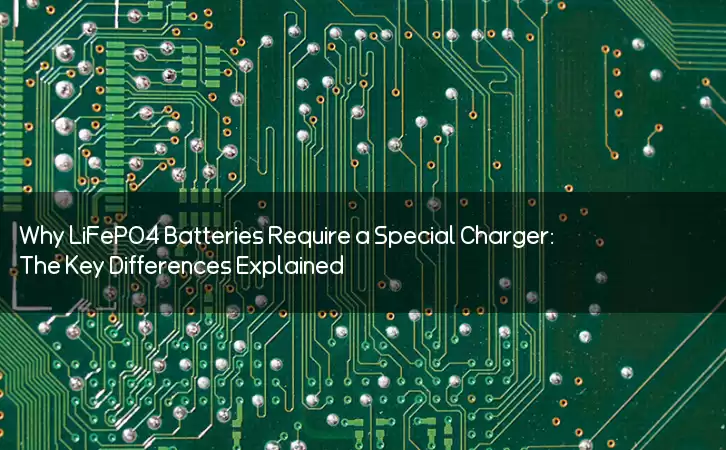Information Center
Why LiFePO4 Batteries Require a Special Charger: The Key Differences Explained
Published:2023-07-25 00:32:21 Author:Green WCND Views:46LiFePO4 is a type of rechargeable lithium-ion battery famous for its high energy density, stable performance, and long-lasting discharge cycle. They are commonly used in electric vehicles, solar power systems, and other high-performance applications. One of the most common questions that arise when considering LiFePO4 batteries is whether they require a special charger. The simple answer is yes, LiFePO4 batteries need a special charger, and here is why:

First, LiFePO4 batteries have unique charging requirements that differ from other types of lithium-ion batteries. LiFePO4 batteries need to be charged slowly and at a moderate temperature to avoid the risk of overcharging, overheating, and possible damage to the battery cells. In contrast, traditional lithium-ion batteries can be charged rapidly and at high temperatures. Therefore, using the wrong charger with LiFePO4 batteries can cause permanent damage and can reduce the battery’s overall lifespan.
Second, LiFePO4 batteries have a different charging voltage range than other lithium-ion batteries. For optimal performance, these batteries need to be charged above 3.0 volts and below 3.8 volts per cell. Any lower or higher voltage range can cause overcharging or undercharging, which can lead to safety hazards and damage to the battery. A specialized charger designed for LiFePO4 batteries is equipped with the precise voltage and current-limiting circuitry required for safe and efficient charging.
Third, LiFePO4 batteries require a high level of precision when charging. A specialized charger for LiFePO4 batteries has advanced charging algorithms that can accurately analyze the battery’s state of charge and adjust the charging parameters according to the battery’s requirements. This precision ensures that the battery is fully charged to its capacity, without overcharging or undercharging.
In conclusion, it is essential to use a specialized charger when charging LiFePO4 batteries to guarantee their safety and optimal performance. A good LiFePO4 battery charger should have features such as slow and moderate charging, precise voltage range, and advanced charging algorithms to provide an efficient and secure charging experience. Investing in high-quality LiFePO4 battery chargers will help ensure the longevity and reliability of the battery, saving both money and time in the long run.
Battery testers of different voltages exhibit significant differences in several aspects, and a 12V battery tester is primarily used for testing a range of spec···
Battery Testers (battery capacity testers/battery detectors) indeed come in various types tailored for different products. These different types of battery test···
The advantages and disadvantages of battery testers are as follows:AdvantagesFlexibility:Battery testers can accommodate various testing modes, making them adap···
Understanding the testing accuracy of golf cart battery testers is crucial for ensuring the precision of test results. Here are some methods to assess the testi···





